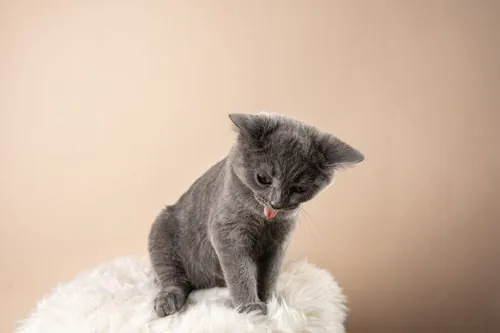Feline Idiopathic Cystitis
 Dr. Doss of TVV Decatur reports…
Dr. Doss of TVV Decatur reports…
It never fails, as we enter the fall season, we always see a surge in Feline Idiopathic Cystitis. FIC, formerly known as Feline Urologic Syndrome (FUS), and Feline Lower Urinary Tract Disease (FLUTS), consists of a complex set of symptoms that can affect cats of all ages. Symptoms include episodes of bloody urine, straining to urinate, urinating in abnormal places, and possible urinary blockage. Of all the cats that display this set of symptoms, 50% do not have a cause that can be identified despite extensive testing and can be classified as suffering from FIC. Idiopathic is the medical term for “we don’t know why”.
FIC can affect both male and female cats; however males are almost exclusively affected by urinary blockage. FIC is believed to be caused by a complex imbalance of hormones, causing affected cats to be unusually sensitive to environmental stress, and to manifest this stress in the urinary tract. It is this rash of blocked male cats in the emergency room that can keep me up at night. By no means am I saying that this condition only occurs in the fall, because we see this syndrome year round, but it seems we always have an increased number of patients in the hospital when the seasons change.
Other conditions that can cause the same symptoms include bladder stones, bacterial infection, urinary tract cancer and trauma to the urinary tract. Older cats that have never had previous symptoms are more likely to have a bladder infection, but can also develop a blockage.
Blockage of the urethra, the passageway of urine from the bladder to the outside, is a life threatening emergency. If a patient is not able to urinate, the bladder can become overly distended to the point of possible rupture, kidney function can be damage, and electrolyte abnormalities can affect the heart. Patients are very painful and distressed and may show signs of vomiting, and extreme lethargy.
It is usually a combination of struvite crystals and mucous that forms a plug that cannot be passed through to end of the urethra as it narrows through the penis. Urethral swelling from inflammation and urethral muscle spasms also adds to the narrowing of the urethra.
Treatment for urinary blockage consists of relieving the blockage by passing a urethral catheter, fluid therapy, pain medications, anti-inflammatory and antispasmodic medications. Most patients will recover but re-blockage after urinary catheter removal is always a huge concern. A small number of patients will need surgery to change the length and shape of the urethra to prevent repeated blockage. Prevention of further episodes is also vital. There is no one measure that can prevent symptoms but several methods have been proven to reduce the frequency and severity of symptoms.
Changing the pH of the urine with the feeding of a veterinary prescription urinary diet is recommended to reduce struvite crystal formation. It is also vital to increase water intake. Feeding a canned food can increase overall water intake as well as offering multiple water sources. Many cats like to drink running water, a fountain type dish can encourage increased water intake.
Daily interactive play has also been shown to reduce clinical episodes in cats with FIC. Chasing a laser pointer or feather on a stick can help reduce stress. Cats should also have a scratching post and an area to climb if they choose.
The most important points to remember are that any cat can suffer from FIC and it is important to recognize symptoms in order to help prevent urinary blockage. Any cat that has displayed symptoms of FIC is prone to repeated episodes and so prevention is essential. Every patient is different, so if your feline friend ever has urinary symptoms, see your veterinarian as soon as possible.
Recent Posts
About The Village Vets
The Village Vets is a network of animal hospitals based in Atlanta, GA and the surrounding area. We offer honest, excellent service to our clients in a comfortable, friendly atmosphere. To learn more about our locations and how we can better serve you and your pet, click the button below.
Share This Post
Recent Posts
About The Village Vets
The Village Vets is a network of animal hospitals based in Atlanta, GA and the surrounding area. We offer honest, excellent service to our clients in a comfortable, friendly atmosphere. To learn more about our locations and how we can better serve you and your pet, click the button below.



